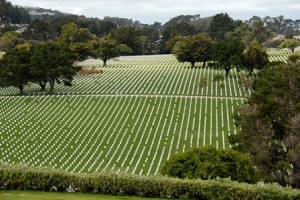The views expressed in our content reflect individual perspectives and do not represent the authoritative views of the Baha'i Faith.
(Adapted from Dr. Lawson’s recent essay “The Return of Joseph and the Peaceable Imagination” in Fighting Words: Religion, Violence and the Interpretation of Sacred Texts (edited by John Renard, University of California Press, 2012).
In the Baha’i tradition, nonviolence is a principle given through revelation, to use the Baha’i term for its primary scripture. Baha’i teachings are unambiguous: the purpose of religion is the promotion of harmony and unity among human beings. The founder of the Baha’i Faith, Baha’u’llah, has written that if religion becomes the cause of disharmony then it is better that there be no religion at all.
Baha’i teachings condemn violence as something to be avoided at all costs. One of the earliest of Baha’u’llah’s written works, the Book of Certitude (Kitab-i-Iqan), which was composed around 1862, discusses the problem of violence chiefly with regard to the violent response of humankind to all the prophets and messengers of God. In several passages, the Author suggests that all previous prophets were considered by their immediate audiences, or at least a segment of them and sometimes an overwhelming majority, to be seditious or heretical:
Why is it that the advent of every true manifestation of God has been accompanied by such strife and tumult, by such tyranny and upheaval? This notwithstanding the fact that all the prophets of God, whenever made manifest unto the people of the world, have invariably foretold the coming of yet another prophet after them, and have established such signs as would herald the advent of the future dispensation. To this the records of all sacred books bear witness. Why then is it that despite the expectation of men in their quest of the manifestations of holiness, and in spite of the signs recorded in the sacred books, such acts of violence, of oppression and cruelty, should have been perpetrated in every age and cycle against all the prophets and chosen ones of God? (Book of Certitude, pp. 12–13)
The condemnation of such violent opposition to God’s messengers is a major theme of the Book of Certitude. Its source, Baha’u’llah says, is selfishness, jealousy, egotism, and vested interest. Though never stated explicitly, the conclusion is certainly difficult to avoid coming to that Baha’u’llah thought it was also caused by an appalling, painful, and pathological lack of imagination:
And now regarding His words, that the Son of man shall “come in the clouds of heaven.” By the term “clouds” is meant those things that are contrary to the ways and desires of men…. These “clouds” signify, in one sense, the annulment of laws, the abrogation of former dispensations, the repeal of rituals and customs current amongst men, the exalting of the illiterate faithful above the learned opposers of the faith. (Book of Certitude, pp. 71–72)

Rows of headstones in a military cemetery
The Baha’i teachings say that civilization, in order to be true to itself, must be peaceful. Thus, violence is completely outlawed — and the idea of “religiously sanctioned warfare” or “jihād” is completely, irrevocably, and unambiguously abrogated. This abolition was first publicly identified with the religion of Baha’u’llah in 1863 in Baghdad, is prominent in Baha’u’llah’s Most Holy Book (Kitab-i-Aqdas), composed in Ottoman Palestine, in 1873, and also appears in Baha’u’llah’s later writings:
O People of the World! The first Glad-Tidings which the Mother Book has, in this Most Great Revelation, imparted unto all the peoples of the world is that the law of jihād has been blotted out from the Book. Glorified be the All-Merciful, the Lord of grace abounding, through Whom the door of heavenly bounty has been flung open in the face of all that are in heaven and on earth.
The explicit mention here of the familiar, frequently vexing, originally Qur’anic term jihād indicates that there is no ambiguity about this Baha’i law. Jihād is neither explained nor interpreted; it is simply abolished.
Nowhere in the rest of the Book of Certitude (or anywhere else in the Baha’i writings) is there any suggestion that those engaged in the pursuit of truth and the quest for divine nearness in this the Day of Resurrection are expected to bear actual arms and engage in anything resembling armed or military activity. The Baha’i Faith – as a distinct, independent religious development that emerged from an Islamic background, much the same way as Christianity emerged from Judaism – outlaws not only jihad, but violence of any kind.
















